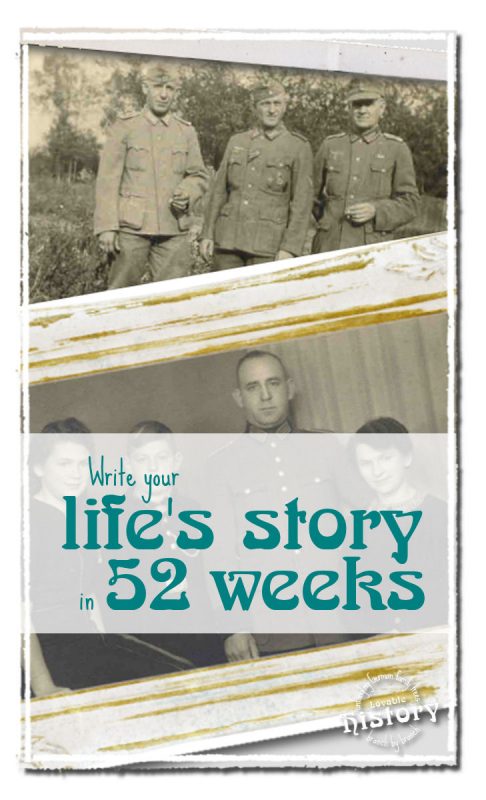This article is part of the series “Put down your life’s story in 52 weeks” in which I accepted the challenge of writing down snippets of my own life’s story in 52 weeks.
![Write your life story in 52 weeks. [www.lovablehistory.com]](http://www.lovablehistory.com/wp-content/uploads/2017/04/lovable-history-life-story-in-52-weeks-B-b.jpg)
Questions 5-8
- What kind of work did your parents do (farmer, salesman, manager, seamstress, nurse, stay-at-home mom, professional, laborer, and so on)?
- Have any of your family members died? If so, explain what they died from and what you remember of their death; the circumstances of their death.
- What kind of hardships or tragedies did your family experience while you were growing up?
- Are there any obvious or unusual genetic traits that run in your family line?
My thoughts
As I mentioned before I won’t make my own life’s story public. But I’ll share my thoughts about one or more of the questions and maybe add a snippet or two of my memories.
In former times a father’s occupation often was passed on to his sons. Nowadays that sounds weird but back then it made sense.
First of all, contrary to what we are used in most professions, parents had to pay for their children’s education and apprenticeship. The “Lehrgeld” covered not only the costs for the training but also for housing and meals since the apprentices often lived with their master’s family.
A lot of people weren’t able to pay those fees. And why pay someone to show the ropes to your children if the father could teach them as well? Father and sons would work together, the father teaching his sons, the sons supporting the family by sharing the workload.
This usually was true for professions that could be done “at home” or required special equipment or facilities, like farmers, carpenters, smiths, tailors, bakers and the likes. Two or even three generations shared the work and contributed to their family’s income. Some families (aka the men) had the same profession for many generations. With the industrialization this practice dwindled more and more. For a long time families still had to pay for their children’s education and apprenticeship.
After WW II the “Lehrgeld” slowly vanished and was replaced by the “Ausbildungsvergütung” which means that now the employer paid the apprentice a small fee. In 1969 the Ausbildungsvergütung became mandatory in Germany.
My grandfather had been a fitter resp. metalworker but was not self-employed. Hence he wasn’t really able to teach my father the same profession. But he knew other (self-employed) fitters who would take in apprentices. That’s how my father learned this profession as well.
When I was born my father worked in a small factory that washed and cleaned raw sheeps’ wool. He had been hired as fitter for the machines. But actually he was an all-rounder, from setting up to repairing the wool washing devices, from tearing down walls to rebuilding them because a new device wouldn’t fit into the old space, from dealing with the old heating in the factory (and the owner’s house) to hauling coal briquets into the coal cellars. I still remember him coming home, covered in coal dust and soot on one day, and oil and wool grease the other.
And then one day he wore elegant suits for work and never again came home with dirty clothes. He had educated himself and studied in evening classes to become a draftsman, developing and engineering industrial spinning frames and weaving looms. Still had to do with metalworking, still had to do with wool…
Btw… everything comes full circle. My mother had been working with spinning frames before they married – as you can see on the picture above. Very likely that had a small influence on his choice of becoming a draftsman.
And to top that off: the factory he had been working at until he retired was the same factory where I was trained to become an industrial clerk.
What kind of professions did your ancestors have? Were those passed from father to son, or did the sons always pick a different profession from their father’s?


Leave a Reply